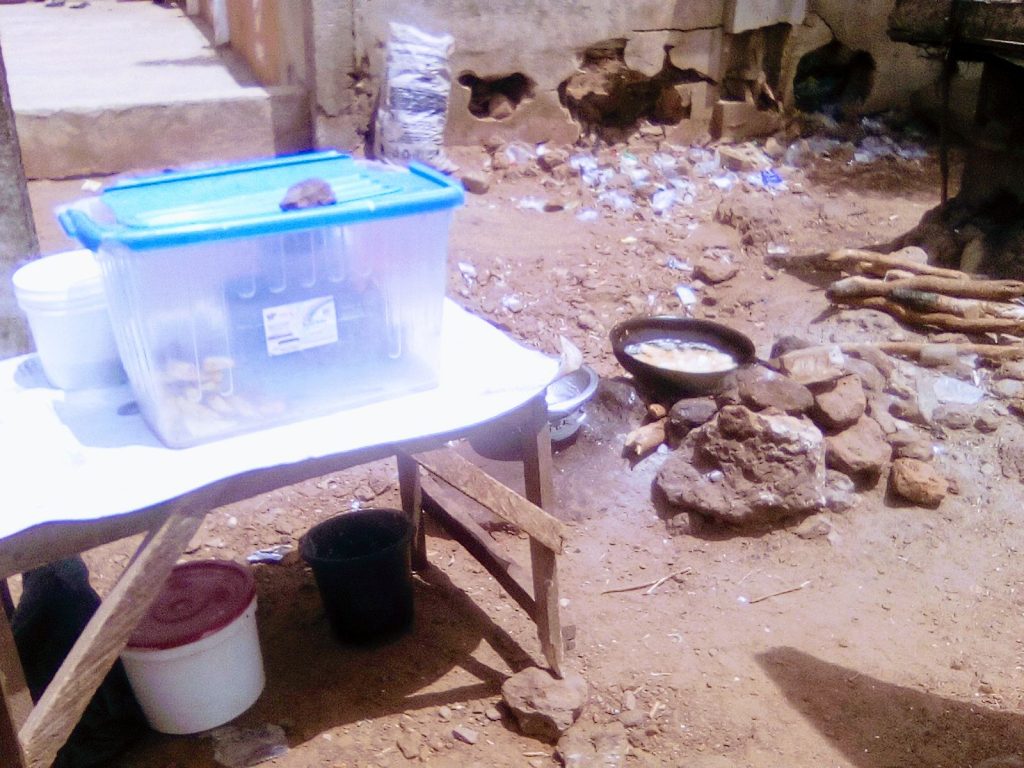In the bustling mornings of Sokoto State, the aroma of fried yams, bean cakes, and other local delicacies fills the air as residents flock to their favourite roadside food vendors. These early hours mark a vital daily ritual for many, who rely on the quick, affordable, and delicious meals prepared by these diligent vendors to kickstart their day.
These vendors offer an array of local delicacies, including pap, kosai (bean cakes), wara, masa, dankali (potato), and yam, providing a vital service to the community. Our latest report looks into the lives and challenges of these unsung heroes of Sokoto’s morning economy, highlighting their resilience and the critical role they play in the community.
Linda Chukwumezie: A Story of Resilience
Meet Linda Chukwumezie, in her late 20s, a steadfast vendor whose commitment to her roadside business has not only funded her education but also supported her younger sister’s schooling. Starting her day at 7:30 am, Linda offers a variety of fried treats, including yam, dankali (potato), wara, and kosai (bean cakes), to a loyal customer base opposite Dogon Daji House.
Speaking to ASHENEWS, Linda has been selling these delicacies for over six years.
“I start frying at 7:30 am every weekday,” Linda shared. “I begin with kosai because it’s popular with pap or bread in the morning. By 8:30 am, I switch to frying yam and dankali, then wara for customers arriving around 9:00 am.”
However, recently her business has faced some challenges due to the current economic realities in the country. Some customers now defer payments until the end of the month, affecting her cash flow. The rising cost of ingredients has also affected her business as she now pays N15,000 for a bag of dankali as against N10,000, N1,000 for a tuber of yam as against N500, and N3,500 for a paint bucket of beans as against N2,500 which she brought early in the year.
This, she said has also impacted her profits, “The current economy is tough. Before, customers could eat and feel satisfied. Now, they just want something to fill their stomachs,” she lamented.
Sharifah Usman: Balancing Morning and Evening Sales
Sharifah Usman, a food Vendor who fries and sells kosai on Abdullahi Kure Road, starts her day at 6:30 am and finishes by 9:40 am, then resumes from 6:30 pm to 9:00 pm.
“I sell pap and kosai in the morning, and my son sells bread nearby. In the evening, I fry kosai for dinner buyers. Some customers buy for work, some for breakfast at home, and some eat here before going to work.
Like Linda, Sharifah struggles with rising costs. “Transportation is expensive—N400 for a bike ride to the market and back. Even my customers complain that the kosai is getting smaller, but I have to explain the high costs of groundnut oil, maggi, pepper, and onions.”
Musa Fumilayo: The Expert Chef

Musa Fumilayo, another food Vendor serving near the old airport, elaborates on the meticulous process of preparing fried yams, dankali, wara, and kosai, underscoring the labor-intensive nature of her work.
“First, cut the raw yam into chunks or slices and fry them in deep oil with a bit of salt for taste,” she instructed. She noted that kosai is especially popular, often prepared daily during Ramadan to eat with kunu (gruel).
Community Voices: The Customers
Usman Umar, a regular customer from Mabera, praised the roadside vendors. “Every morning, I buy kosai and pap. If you’re not early, you have to wait your turn,” he said, highlighting the punctuality and popularity of these vendors.
He explained that Mama Idris, the seller, serves customers in the order they arrive, regardless of their status in Mabera. “If you’re late, you have to wait your turn,” he said.
“I buy pap and kosai in the morning before going to work. In the evening, I only buy kosai and bread from a nearby shop. But Mama Idris doesn’t open on Saturdays and Sundays, so I have to find something else to eat for the weekend and wait patiently for Monday morning.”
Read Also: Expert proffers solution to perennial egg glut
Mr. Bashar Bello, who buys from Linda, has noticed the economic changes. “I used to buy N300 worth of yam and kosai, which was plenty. I would eat some and put the rest in a bag to take to my office for later. Now, because the economy has gotten worse, I buy N400 worth of yam and kosai, which is now just four slices of yam and four pieces of kosai. Sometimes, she adds an extra slice of yam or kosai, but it’s not enough for me to have leftovers to take to my office anymore,” he said.
“I hope things go back to normal so I can buy yam and kosai for N300 again, eat my fill, and still have some left to take to the office. My colleagues know I used to always bring extra with me.”
Abba Sani, a daily customer of Mrs. Sharifah, echoed these sentiments. “I have been living on Abdullah Kure Road for 3 years now. Buying pap and kosai is a daily habit for me. I used to get pap and kosai for N300. Now, it costs N500 which consists of pap for N100, sugar for N50, and kosai for N350. Before, I didn’t need to buy sugar separately; it was included with the pap for N100 but now, even buying it N50 is still not enough. The increase in prices has really affected our daily meals.
“The kosai I buy now for N350 is not even half of what I used to get for N200 before prices went up. The bread I used to buy for N350 every evening on my way back from work is now N700. I really wish prices would go back to how they were before because I know I’m not eating to my satisfaction anymore,” he lamented.
Ahmed Usman, who frequents Fumilayo’s stall, has also cut back on his purchases. “I used to buy dankali and kosai for N300 in the morning, It was always plenty, so I would eat some and cover the rest on the plate. In the afternoon, I would buy dankali and wara, add them to the plate, and eat everything. In the evening, I used to buy wara for N250, which was a lot, and I would take it home.

“But now, I spend N500 and still feel it’s not enough. I ask Madam to add more because it is too little. She says, ‘Customer, everything is expensive in the market now.’ I no longer buy in the afternoon anymore, only in the morning and evening, because of how costly things have become,” he explained.
Despite these challenges, the resilience of Sokoto’s roadside vendors remains a testament to their essential role in the community. Their stories reflect not only the economic pressures they face but also their unwavering dedication to providing affordable and satisfying meals to their loyal customers. The people of Sokoto metropolis can help the roadside food vendors by supporting their businesses.

